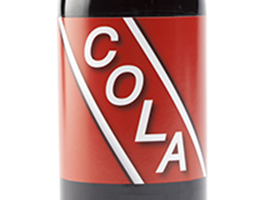Standing Up for a Healthy School Environment
 By Leslie Levine, MPH, LiveWell Colorado Technical Assistance and Research Manager
By Leslie Levine, MPH, LiveWell Colorado Technical Assistance and Research Manager
Today’s obesity crisis is a complex issue that cannot be solved overnight and requires a multi-pronged approach. One of those approaches is to look at our schools as health-promoting environments. For the past seven years, Colorado has been a leader in promoting healthy standards for school nutrition, including healthy beverages. Yet, the Colorado State Board of Education voted to lift a ban on diet soda sales in high schools on September 14.
Naturally we were disappointed in the Colorado State Board of Education’s decision to allow diet soda back into Colorado’s high schools. We were grateful State Board members Val Flores, Jane Goff and Angelika Schroeder voted against removing the ban on diet soda sales. What might the risk to lifting this ban be, especially for schools struggling with funding challenges? This is a question we’re still trying to understand, and only time will tell how school districts address diet soda sales in their wellness policies.
Our concern has always been that putting diet soda back into schools limits our ability to provide a healthy learning environment for students. One of the 2016 Legislative Priorities for the Colorado Board of Education is to close the student achievement gaps in Colorado. The ties between health and academic achievement are strongly supported through research. While many students of color are trailing behind in academic performance, soda companies are disproportionately targeting their advertising to communities of color.[1] We should do everything we can to reduce gaps in academic performance, including promoting a healthy environment in our schools.
While diet soda has been promoted as a healthy alternative to regular soda, there are potentially harmful health side effects. In fact, research has determined that diet soda consumption, may lead to weight gain, impaired glucose control, and eventual diabetes.[2]
Returning to lower federal standards does not streamline Colorado laws and policies for schools. Schools will still have to navigate multiple policies and laws despite this decision by the Colorado State Board of Education.
While the ban being lifted is a setback for Colorado’s position as a school wellness leader, we intend to work together with state and school officials and our partners to create a healthy school environment across the state. And we’re calling on Colorado school districts to pass a policy to keep the ban in place. Our kids deserve the best possible learning environment that supports healthy behaviors. We will always stand by that, because we believe all Coloradans should have the opportunity to live healthy lives.
[1] http://www.usnews.com/news/blogs/data-mine/2016/01/13/achievement-gap-between-white-and-black-students-still-gaping; http://www.pbs.org/newshour/rundown/new-research-uncovers-little-improvement-in-achievement-gap/
[2] Nettleton JA, Lutsey PL, Wang Y, Lima JA. (2009). Diet Soda Intake and Risk of Incident Metabolic Syndrome and Type 2 Diabetes in the Multi-Ethnic Study of Atherosclerosis (MESA). Diabetes Care, 32:688-694.

